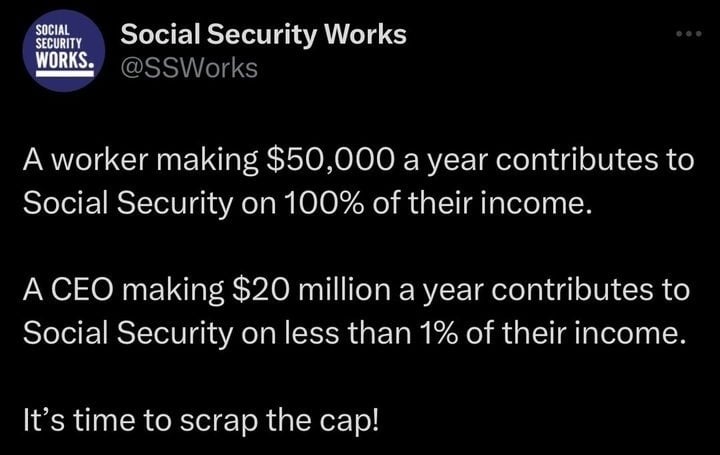1376
you are viewing a single comment's thread
view the rest of the comments
view the rest of the comments
this post was submitted on 26 Nov 2023
1376 points (94.5% liked)
A Boring Dystopia
15163 readers
47 users here now
Pictures, Videos, Articles showing just how boring it is to live in a dystopic society, or with signs of a dystopic society.
Rules (Subject to Change)
--Be a Decent Human Being
--Posting news articles: include the source name and exact title from article in your post title
--If a picture is just a screenshot of an article, link the article
--If a video's content isn't clear from title, write a short summary so people know what it's about.
--Posts must have something to do with the topic
--Zero tolerance for Racism/Sexism/Ableism/etc.
--No NSFW content
--Abide by the rules of lemmy.world
founded 2 years ago
MODERATORS

not really. short term investments and speculation are vulnerable to short term market forces, but a 401k that sits for 30 years with regular contributions and profits reinvested is all but guaranteed to make money. Long term investments like that are extremely stable, just put the money in your 401k and don't look at returns until you're actually considering retirement.
What's critical is where the stock market is at when you retire. Stock market crashes coming with general economic problems mean older people lose their jobs, can't find another one, and are forced to retire with 40% of their 401k value knocked out. This is exactly what happened to people in 2008 and '09.
Conversely, the stock market did really well in the years after that. The people who were able to hold out past 2012 were able to get a nice nest egg saved up.
It's a dice roll. It can work as one part of a larger system, but not on its own.
40% of the value before the crash, I assume? In that case, what's the difference between their contributions and the total value even with that 40% gone? Remember that the real value of an investment is how much money is there now vs how much you put in, not how much money is there at peak value vs how much money is there now.